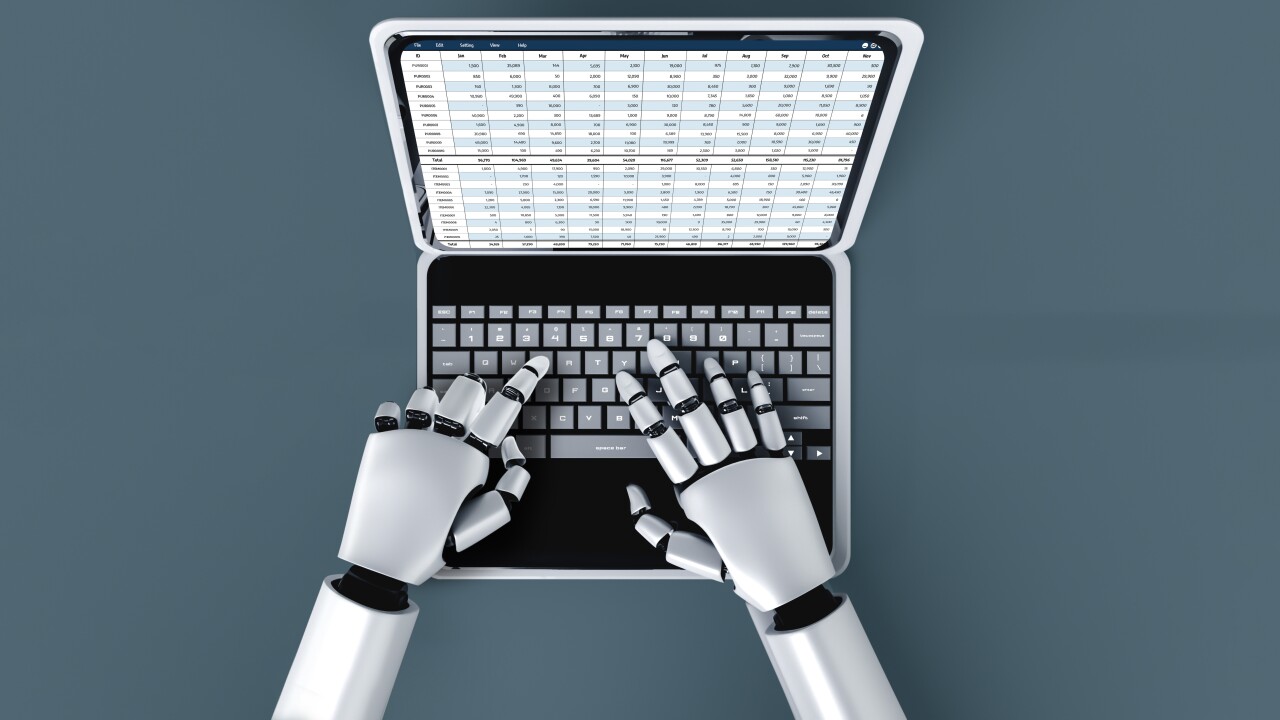As critical as the financial close is, accounting professionals know it's also often a time-consuming, cumbersome and error-prone process.
It's also a process that can put additional stress on an already overtaxed workforce. Burnout is a pernicious threat in the industry — 88% of accounting professionals are looking for better work-life balance and 71% want more help from their workplaces to manage their mental health, according to an Association of Chartered Certified Accountants
The good news: Advancements in artificial intelligence and machine learning could potentially revolutionize how accounting teams approach the close — automating and streamlining workflows to make data processing faster and more accurate, reducing the time and effort needed to complete the close. While finance has earned a wait-and-see reputation in many arenas, they're signaling an early and enthusiastic embrace of AI and ML: 55% of finance executives are aiming for a touchless financial close by 2025, according to a recent
"Zero-day" may sound like a daunting goal, but in reality a continuous or zero-day close is an incremental journey — and benefits are reaped with each process improvement and task automation you make. By booking information continuously throughout the reporting period and enlisting AI and ML to handle the manual, repetitive tasks, like transaction processing and number crunching, accounting teams reduce the amount of time they spend focusing on the "what" and spend more time focusing on the "why."
Intelligent automation is an absolute linchpin in the journey to a zero-day close. Modernizing an organization's accounting practices without AI and ML simply cannot be done, and leaders should focus on areas where they can save time and create efficiencies — without sacrificing accuracy. And, of course, the goal is to elevate and augment the team's performance, never to replace humans.
Below are a few use cases for leveraging embedded AI and ML technology for the close.
- Streamlining inputs into the system: There's little upside to manual data entry — especially for accountants who are already working long hours during the close. Natural language processing technology can help accountants convert unstructured data, such as emails, invoices and receipts, into structured data that can be easily processed and analyzed.
- Surfacing anomalies: It's essential for accountants to identify errors and risks, which can sometimes feel like finding a needle in a haystack. AI and ML algorithms can analyze large volumes of data quickly and precisely, detecting patterns and surfacing outliers that might easily be missed by human analysts. The earlier errors and anomalies are detected, the faster they can be addressed by accounting professionals, ensuring small issues don't balloon into larger problems while also preventing reconciliation headaches during the close.
- Automating analysis: By analyzing vast volumes of historical financial data, trends, and patterns, AI and ML models are able to model potential future outcomes.
AI and ML are getting a ton of attention lately — and with good reason. These technologies could impact almost every corner of accounting, including the financial close. Still, it's important to remember that technology is just one piece of the puzzle when it comes to making progress toward a zero-day close. The people piece is also essential — as is fitting the pieces together.
While it's hard to predict exactly how accounting may evolve over the next five or 10 years, it's clear that companies need people who can lead through ambiguity and who are keen to adapt and evolve their capabilities as the future unfolds.





